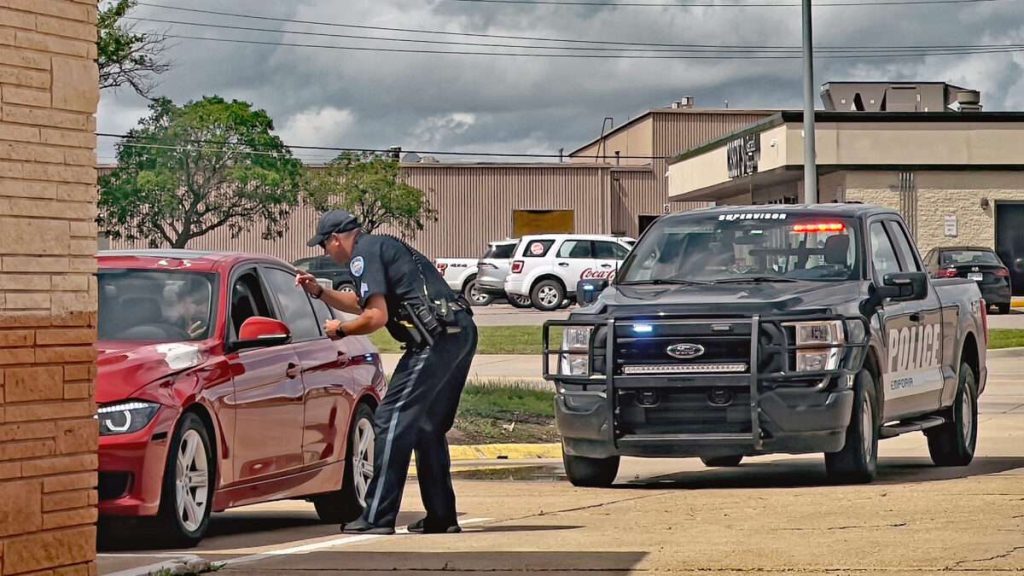The Kansas Legislature unanimously passed a bill overhauling the rules for when police can seize property under a practice known as civil asset forfeiture.
The Kansas House and Senate voted 120-0 and 35-0, respectively, to send S.B. 458 to Democratic Gov. Laura Kelly’s desk earlier this month. Among its provisions, the legislation would make offenses related to possession or personal use of drugs ineligible for civil asset forfeiture, require law enforcement agencies to notify county prosecutors of a request for forfeiture within 14 days, and limit when local police can let federal law enforcement “adopt” their forfeiture cases.
It would also require judges to consider whether a seizure is unconstitutionally excessive, put the burden of proof on prosecutors to show that the seizure was proportional to the offense, and allow some property owners to recoup legal costs when they successfully challenge a seizure.
A broad spectrum of civil liberties groups and think tanks supported the bill, arguing that Kansas’ civil asset forfeiture process was unjustly tilted in the government’s favor and against property owners. More than 30 states have reformed their asset forfeiture laws over the past decade because of complaints like these, but Kansas was not among them.
Under typical civil forfeiture laws, police can seize property when it’s suspected of being connected to criminal activity, such as drug trafficking, even if the owner is never charged with a crime. Law enforcement groups say civil forfeiture is a vital tool for disrupting organized crime by targeting its illicit proceeds.
However, Sam MacRoberts, litigation director of the Kansas Justice Institute, says the reforms “were long overdue and desperately needed.”
“Forfeiture is abusive and unjust,” MacRoberts says. “Raising the burden of proof, limiting federal adoptions, and requiring the government to pay reasonable attorney fees to successful property owners—among other reforms—is a great start. We’re hopeful this will cut down on some of the more abusive forfeiture cases.”
One of those cases was the ordeal of Dewonna Goodridge, a 57-year-old Junction City resident whose 2007 Chevrolet Tahoe was seized by Geary County sheriff’s deputies last year. The deputies had pulled over her son for several alleged traffic infractions, then seized the truck after a deputy claimed to find “shake” —small marijuana crumbs—in the center console, which was never collected for evidence. County prosecutors moved to seize Goodridge’s truck, claiming it “represent[ed] the proceeds of illegal drug transactions, or was used, or intended to be used, to facilitate drug transactions.”
It took eight months and representation from the Kansas Justice Institute before Goodridge got her truck back. (That’s not unusual. A 2022 Americans for Prosperity report on Kansas’ forfeiture laws found that people who were able to recover their seized property took an average of 419 days to get it back.)
Kansas law enforcement groups opposed several parts of the bill, and to obtain a bipartisan compromise legislators dropped a provision that would have added the ability to demand a jury trial in asset forfeiture cases.
Many other state supreme courts have ruled that property owners have a due process right to a jury trial in forfeiture cases. Last year, the Indiana Supreme Court ruled that the seizure of property through civil forfeiture is “an essentially legal action that triggers the right” to a jury trial.
The New Jersey Supreme Court also affirmed the right to jury trials in drug forfeiture cases in State v. One 1990 Honda Accord, and the Pennsylvania Supreme Court followed suit in Commonwealth v. One 1984 Z-28 Camaro Coupe. The South Dakota Supreme Court cited both cases in State v. One 1969 Blue Pontiac Firebird and $4,403.83 in American Currency.
The lack of jury trial protections was a disappointment for supporters of the Kansas legislation, but MacRoberts says they will keep working for more reforms.
“The government should have to prove their case to a jury,” he says. “We’ll keep pressing ahead to make sure Kansans have their cases heard by their peers. There’s more work to be done, but it’s definitely a step in the right direction.”
The post The Kansas Legislature Unanimously Passed a Civil Asset Forfeiture Reform Bill appeared first on Reason.com.






